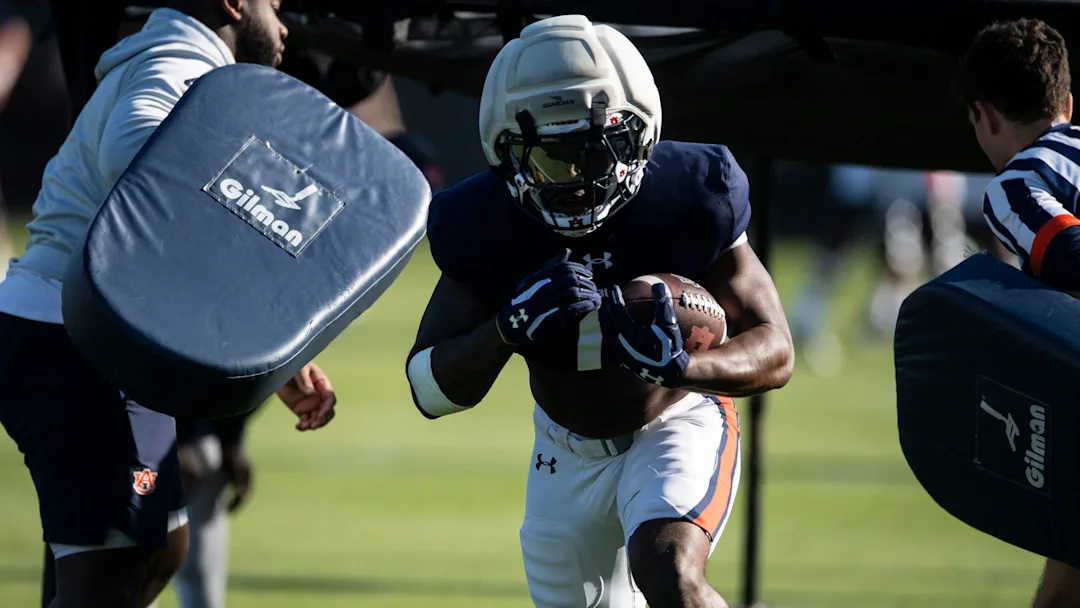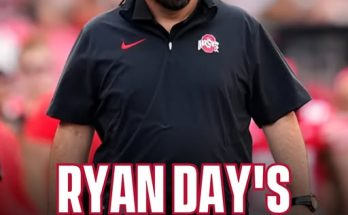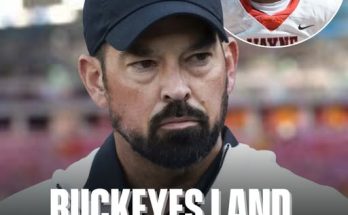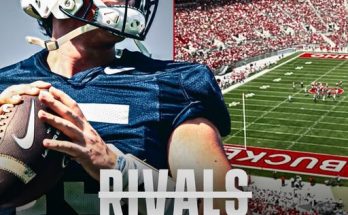Damari Alston didn’t need to say much to become the voice of Auburn’s running back room. His presence, attitude, and work ethic have done most of the talking. Now entering the most pivotal chapter of his college football career, Alston is no longer the promising freshman trying to find his footing—he’s the seasoned veteran, the emotional heartbeat, and the leader of a backfield eager to make noise in the SEC.
When Alston arrived at Auburn, the program’s running back identity was still very much in flux. Known for producing physical, explosive backs who left their mark on Saturdays in the South, Auburn had enjoyed a proud tradition at the position. Names like Cadillac Williams, Ronnie Brown, Tre Mason, and Kerryon Johnson had set the standard. But with coaching changes and roster reshuffles over the last few years, stability was hard to come by. That’s what makes Alston’s rise so compelling. Not only has he weathered the storms around him—he’s become a calming force for the program.
From the moment spring camp began this year, it became obvious who was running the show in Auburn’s backfield. While the competition is stiff and younger talent continues to arrive, Alston’s command of the offense and his vocal leadership have made him indispensable. Coaches trust him. Teammates rally around him. And most importantly, Alston carries himself like someone who understands what’s at stake—not just for himself, but for the entire program.
What sets Alston apart isn’t just the stat sheet—though those numbers are steadily trending upward. It’s how he handles the little things. It’s the way he attacks each drill with purpose, the way he pulls a younger back aside after a rep to offer a correction or encouragement, and the way he holds himself accountable, even when no one else is watching. In a sport where flash often overshadows substance, Alston brings both. He can make defenders miss in the open field, lower his shoulder for the tough yards between the tackles, and still find time to lead film study sessions later that night.
There’s a maturity to Alston now that wasn’t there when he first suited up in orange and blue. Back then, he was wide-eyed, eager, and raw—a freshman adjusting to the speed of SEC football and trying to find his role. Today, he’s one of the most respected players in the locker room. Not because he demanded it, but because he earned it.
His growth has been steady, not sudden. Injuries early in his career forced him to sit back, study, and learn the game from a different angle. While others might have sulked or considered transferring, Alston stayed the course. That commitment to Auburn, and to his own development, is paying off now in a major way. He’s not just a better runner; he’s a smarter player. He understands defensive fronts, recognizes blitz pickups, and knows exactly where his linemen are going to be on each snap. That kind of vision is rare—and invaluable.
Alston’s impact extends beyond just Xs and Os. His leadership in the locker room has brought a sense of unity to the running back room. Whether it’s late-night conversations about goals, organizing offseason workouts, or just checking in on a struggling teammate, Alston has embraced the responsibility of being a true team leader. In a sport where roster turnover is constant and egos often collide, that kind of stability can be the difference between a good team and a great one.
The younger backs in Auburn’s rotation have taken notice. They follow Alston’s lead during drills. They ask him questions in the film room. And they see how he handles both praise and criticism with grace. That influence is already paying dividends, as Auburn’s running back room looks deeper and more prepared than it has in years.
Head coach Hugh Freeze has praised Alston publicly on multiple occasions, citing his attitude and consistency as model traits for the rest of the team. Behind closed doors, the sentiment is the same. Coaches rave about his professionalism and drive. They trust him to execute in big moments, and they value the example he sets. In a locker room filled with talent, Alston has become the glue.
What’s especially impressive about Alston is how he’s evolved his game. Known in high school as a physical runner with breakaway potential, he’s developed into a true three-down back at the college level. He’s more patient now, letting plays develop instead of trying to bounce outside every time. He’s stronger, thanks to hours in the weight room and a renewed focus on nutrition and recovery. And his hands? He’s become a reliable pass catcher out of the backfield—something that could prove huge in Auburn’s offensive scheme moving forward.
This year, the opportunity is there for Alston to not just lead but to dominate. With Auburn looking to reestablish itself as a contender in the SEC, a strong running game will be vital. Alston is expected to be the centerpiece of that attack. Whether it’s grinding out yards late in the fourth quarter or breaking a big run to flip momentum, he’s ready for the challenge. And make no mistake—he welcomes the spotlight.
He knows the history of Auburn running backs. He knows the names that came before him. And while he doesn’t crave the attention, he understands the legacy he’s now a part of. There’s a quiet confidence about Alston. He doesn’t need to tell you he’s ready. He shows you every day.
His teammates see it. So do the coaches. So do the fans who watched him grow from a role player into a leader. And if this season goes the way he envisions, the rest of the SEC is going to see it too.
Of course, the road ahead won’t be easy. The SEC is as deep and competitive as ever, and Auburn faces a gauntlet of tough defenses. But Alston isn’t flinching. He’s been through adversity before. He’s been doubted. He’s been overlooked. And each time, he’s responded with work—relentless, focused work.
That mentality is contagious. It’s why his teammates believe in him. It’s why his coaches trust him. And it’s why Auburn fans are excited about what this team can accomplish with Alston leading the way.
When he takes the field this fall, he won’t just be playing for yards or touchdowns. He’ll be playing for a program he’s fully invested in. He’ll be playing for teammates who look to him for guidance. And he’ll be playing for a legacy he’s now helping to build.
Damari Alston didn’t just earn the role of leader—he became it through action, humility, and relentless commitment to getting better. In an era where players move around constantly, where loyalty can be fleeting, and where hype often outweighs substance, Alston is a throwback. A grinder. A leader. The kind of player you build a program around.
And as the 2025 season approaches, it’s clear that Auburn’s backfield is in good hands—strong, steady, determined hands that belong to No. 22, the leader they needed, exactly when they needed him most.



